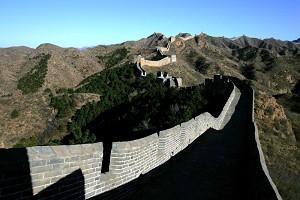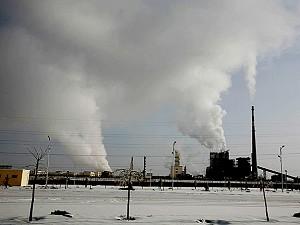TAIPEI–A list released by Reporters Without Borders reveals that 32 journalists are currently being detained in China. However, the former Editor-in-Chief of China Youth Daily’s “Freezing Point”, Li Datong, is of the opinion that the list cannot begin to reflect the extent of the CCP’s control over the press. The Chinese communist regime, as Li points out, has a very simple, yet effective way to manipulate the media. As long as it gains control over an editor-in-chief, Li says, it can gain control over an entire publication.
Voice of Germany reported that the Paris-based Reporters Without Borders (RWB) held activities on the seventeenth anniversary of Imprisoned Reporters Day. The purpose of the activities was to call on the international community to express concern over the reporters who are persecuted or imprisoned by various authorities the world-over because they insist on fulfilling their duty as journalists. Included on the list released by RWB are Zhao Yan, Shi Tao, and Ching Cheong. Zhao Yan, a Chinese researcher for the New York Times , was indicted for revealing state secrets but was convicted of fraud and sentenced to 3 years in prison. Shi Tao was also indicted for revealing state secrets and sentenced to 10 years in prison. Ching Cheong, chief China correspondent for the Singapore Straits Times , was indicted for spying and sentenced to 5 years in prison. His appeal was recently denied.
Currently there are 139 reporters imprisoned worldwide, 32 of which are being held in China. Once again China is the country at the top of the list for most detained reporters, which causes much public concern over freedom of the press and security of the press in China.
Li Datong points out that the list of imprisoned reporters cannot directly reflect the extent of China’s control over the press because the authorities have other means to manipulate the media. Control over the press can be established without directly imprisoning reporters.
Li Datong says that when viewed purely from the angle of detention, this is definitely not a bedrock policy of the government because such a political structure in China has no need to directly persecute reporters. Since reporters are not given any rights to independent newsgathering, publication, and reporting, only control over the editors-in-chief is needed.
Li further states that this is the basic feature of the media in China. Editor-in-chief sounds like one staff member of the press, but in reality, the editor-in-chief functions as a censor whose routine work is to assure what cannot be published instead of what can and will be published. This is the crucial problem with the news in China.
Li points out that “the Chinese regime’s control over the media is vertically integrated from top to bottom. This is easily proven by the fact that few reporters working for the state-run or province-run media are imprisoned. Generally speaking, the Chinese regime doesn’t need to persecute individual reporters to assure its control over the media.”
Regarding the fact that reporters like Shi Tao are sentenced, Li Datong explains that, “They just want to give you a hard time, but I think that they are not that stupid. Now they seem to be no longer legally tenable. They also realized this point, and the cases of imprisoned reporters also cause extensive public outrage. The regime is very unlikely to purge you purely because of news publication.”
At the beginning of this year, China Youth Daily’s “Freezing Point” was banned because of its sensitive statements. Its editor-in-chief Li Datong, who was removed from his original position, is under the media spotlight because he directly challenges the controlling power of the Propaganda Department of the CCP’s Central Committee.



